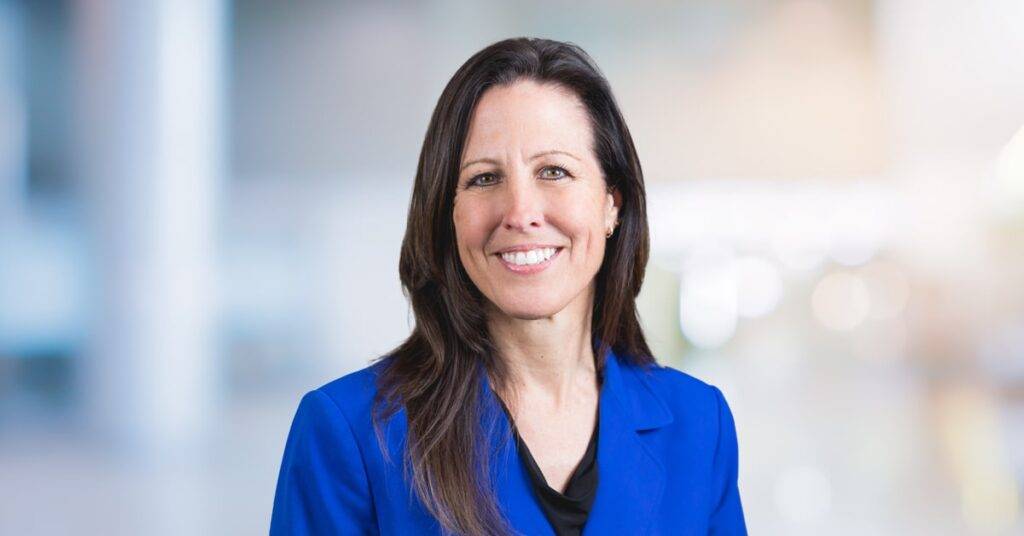- Solutions
- Solutions
- Home Health
- Hospice
- Life Plan Community
- Palliative Care
- Private Duty
- Senior Living
- Skilled Nursing
- Skilled Nursing
- Skilled Nursing Software
- Advanced Insights
- Customer relationship management
- Data and analytics
- Financial & operations management
- Marketing
- Nutrition management
- Referral management
- Regulatory compliance
- Retail management
- Resident engagement
- Revenue cycle management
- Skilled nursing interoperability
- Partners
- Blogs
- Resources
- About
- User Conference

Beyond staff appreciation: Keeping your team happy and engaged
Hiring staff for your facility has been challenging for a while, and isn’t likely to get easier anytime soon. One of the best ways to meet that challenge is to keep the team you already have. And of course, that means keeping your staff engaged and happy with their work.
You probably already have formal programs for employee recognition, and you should definitely keep those in place. I’m going to offer some additional ideas for showing appreciation for your staff and boosting job satisfaction.
Foster individual connections
There are two angles to consider when looking for ways to keep your staff engaged. The first is based on connecting on a personal level. It’s important to build relationships with your staff using purposeful interactions and active listening. Soliciting their input in decision making and performance improvement projects can help them feel that they are valued contributors to your team’s success.
It’s also important to make sure there are pathways to help employees—both clinical and non-clinical— develop. Identify the team members who are interested in growing, and make sure they have a way to do that within your organization. You don’t want them to look elsewhere to advance their skills or progress in their careers.
Another common practice is to recognize the “rock star” employees, the ones who do something great for a patient or a family member. And of course, we should always do that. But don’t forget to acknowledge the team members who are stable, always reliable, on time, doing exactly what they need to do. Even if they aren’t doing amazing things, they’re still a key part of your team and your organization’s success.
And don’t forget the power of “old school” recognition tools like parties to mark group achievements, or even a personal note thanking them for a job well done. These simple gestures can go a long way toward making sure your team feels seen and valued.
Ensure your team has the right tools
Recognizing the good work of your employees is certainly a big part of team building and keeping your crew together. But the other piece, especially in this day and age, is making sure you have the right tools and technology to support their work.
When you consider new technology, make sure you evaluate whether it’s intuitive and easy to use. You want your staff to feel comfortable and confident with the tools they use. Meet your team members where they are and get them the training and support they need. It would be a shame to have someone leave your facility because they didn’t feel comfortable with your EHR when all that was needed was a little more training or a mentor.
Look for technology tools that can automate or even eliminate mundane tasks that reduce job satisfaction. If your team can get tedious tasks out of the way, they have more time to focus on the part of the job they really want to do, which is taking care of patients.
Consider implementing tools that give your employees some control over their schedules, for better work-life balance. If they know two weeks in advance what their shifts will be, they can plan for whatever they need to get done outside of work. Some tools even let team members swap shifts when something unexpected comes up, giving them added flexibility and helping ensure your organization is appropriately staffed.
New technology tools can help leaders, too, by letting you see what is going on with each individual on your team. For example, if you notice that someone who generally comes in on time for every shift is now running late, or having to leave early, you can address issues right away—whether they’re related to work or something happening in their home life. It’s an opportunity to let them know you care about them, not only as an employee, but as a person. And in my experience, those kinds of interactions and support are what lead to devoted team members who will stay with you long-term.
Lead by example to create a supportive culture
To make a cultural shift toward valuing and engaging your employees, leadership team members should have conversations about why that’s important, and then develop an action plan for how to build a caring, supportive culture. And the entire team needs to model that behavior. Interactions with patients and staff are mainly how you demonstrate that, but if you’re in a building with 400 patients, one person can’t be the example for everybody. It’s important to engage the entire leadership team in leading by example.
We’re all human, and we all want to be treated kindly and respectfully, whether we’re at work, at home, out shopping, or in a restaurant. In a caregiving facility like yours, remember that the culture you need to take the best care of your patients is the same culture for taking good care of your employees. Making sure they have the right tools and technology, and routinely expressing appreciation for their dedication will lay a solid foundation for keeping your team engaged.
MatrixCare technology can help you build an organizational culture that keeps your team engaged. Find out how.
See what MatrixCare can do for you
Allison Rainey
As our Head of Nursing and Clinical Informatics, Allison Rainey oversees the deployment of clinical technologies. As a Registered Nurse and License Family Practitioner, Allison drives a caregiver-first approach in our products, collaborating closely with product leaders to ensures our products and services prioritize the needs and challenges faced by healthcare providers. By aligning workflows, designs, and overall product strategy, Allison strives to offer the most user-friendly, clinically superior, and efficient suite of comprehensive solutions in the industry. Allison brings extensive post-acute care experience from her 20-year tenure at NHC, one the largest publicly traded Senior Care providers in the U.S. She is a seasoned leader in population health management strategy, clinical reporting and analytics development, and inpatient hospital care. In her most recent role as AVP of Clinical Information Technology, she oversaw the deployment and utilization of various clinical technologies, including the MatrixCare EHR, across the extensive NHC network. Allison holds a Bachelor’s and a Master’s in Nursing from the University of Tennessee.
Related Posts



See MatrixCare in action
Start by having a call with one of our experts to see our platform in action.
MatrixCare offers industry-leading software solutions. Thousands of facility-based and home-based care organizations trust us to help them improve efficiency and provide exceptional care.
© 2025 MatrixCare is a registered trademark of MatrixCare. All rights reserved.





